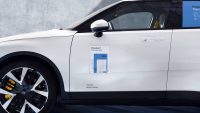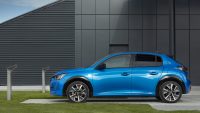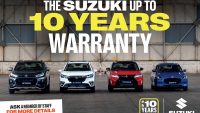Industry experts are calling on the government to do more to encourage motorists to go electric after a poll found that public support for the 2030 ban is on the slide.
Data collected by Electrifying.com and The AA found that just 16 per cent of people are currently in favour of the 2030 ban on new petrol and diesel cars.
The survey quizzed 11,565 drivers on their views, with just nine per cent saying that they expect their next car to be an electric model.
When asked what it was that was stopping them from making the leap, a whopping 87 per cent said that they thought EVs are too expensive, up from 81 per cent in the same survey two years ago.
The results come just a day after a panel of industry experts admitted to the House of Lords that used EVs would never be as cheap as their petrol and diesel counterparts.
Meanwhile, two thirds (66 per cent) said that rising energy prices were putting them off buying an electric car.
Just eight per cent of respondents said they have have confidence in buying a used electric car, with 64 per cent citing concerns that their batteries don’t last as long as a traditional engine.
The survey also highlighted ongoing concerns over charging with seven out of ten of saying that the public charging infrastructure is unreliable, compared to 56 per cent in the last survey.
In response to the findings, the AA and Electrifying.com have written a joint letter to Transport Secretary Mark Harper.
In it, they call for the government to introduce a charter to help mass market consumers make the switch to electric.
Suggestions include appointing a Minister for EVs; levelling up charge point provision and speeding up the planning process and grid connection to allow charge point providers to invest with certainty.
It also called on VAT to be cut on EVs to stimulate the market and for the creation of a ‘Chargepoint Mandate’ to show progress towards its goal of having 300,000 publicly available charge points by 2030.
Ginny Buckley, founder and CEO of Electrifying.com said: ‘On the surface sales of electric cars might look positive, but our recent survey results speak for themselves.
‘Britain’s struggling car buyers are increasingly hesitant to make the switch to electric, and unless action is taken quickly we risk faltering on the road to 2030.
‘The recent backlash in the press will have done little to alleviate people’s concerns and it’s time for the government to take a lead and come up with a joined up cross-governmental approach focusing on education, financial incentives and clear infrastructure targets to help consumers make the switch with confidence.
‘The transition to electric cars is a critical issue, not only for the air we breathe in our towns and cities, but also for the wider economy and the UK automotive industry.
‘Policy makers need to pull the plugs out of their ears and start listening to the concerns of drivers across the UK.’
Edmund King OBE, AA president, added: ‘Ahead of World EV Day The AA and Electrifying.com are calling upon the government to do more to help drivers switch to cleaner, greener vehicles.
‘There is no doubt that the higher initial cost of EVs and charging difficulties, particularly for those without off-street parking, are putting off a significant proportion of drivers from being able to make the switch.
‘Financial incentives are needed to help ‘level up’ the affordability for those drivers not able to benefit from salary sacrifice or company car discounts.
‘Once drivers are able to go electric they will enjoy the financial, driving and environmental benefits and will not look back.’
In a separate survey, carried out by Auto Trader, it was also found that fewer than half of drivers are currently willing to make the switch to electric.
According to that data, only 47 per cent of drivers think EVs will fit in with their lifestyle.
The poll of 4,000 drivers also found that 56 per cent of drivers consider EVs too expensive and 47 per cent are worried over a lack of charging points.
Ian Plummer, commercial director at Auto Trader, said: ‘There is still much more work to be done to achieve a mass transition to electric vehicles before the 2030 ban on new petrol and diesel models and ensure no driver is left behind.
‘Support from the tax system to put the used EV market on a more robust footing is vital for the sustainability of the entire EV market and our chances of successfully transitioning to EVs by 2030.
‘Consumers are still worried about affordability and charging, which is why we need a clear statement of intent from the Government. Penalising drivers who have to charge in public with higher VAT is simply unfair: we need to end this charging injustice.’



































